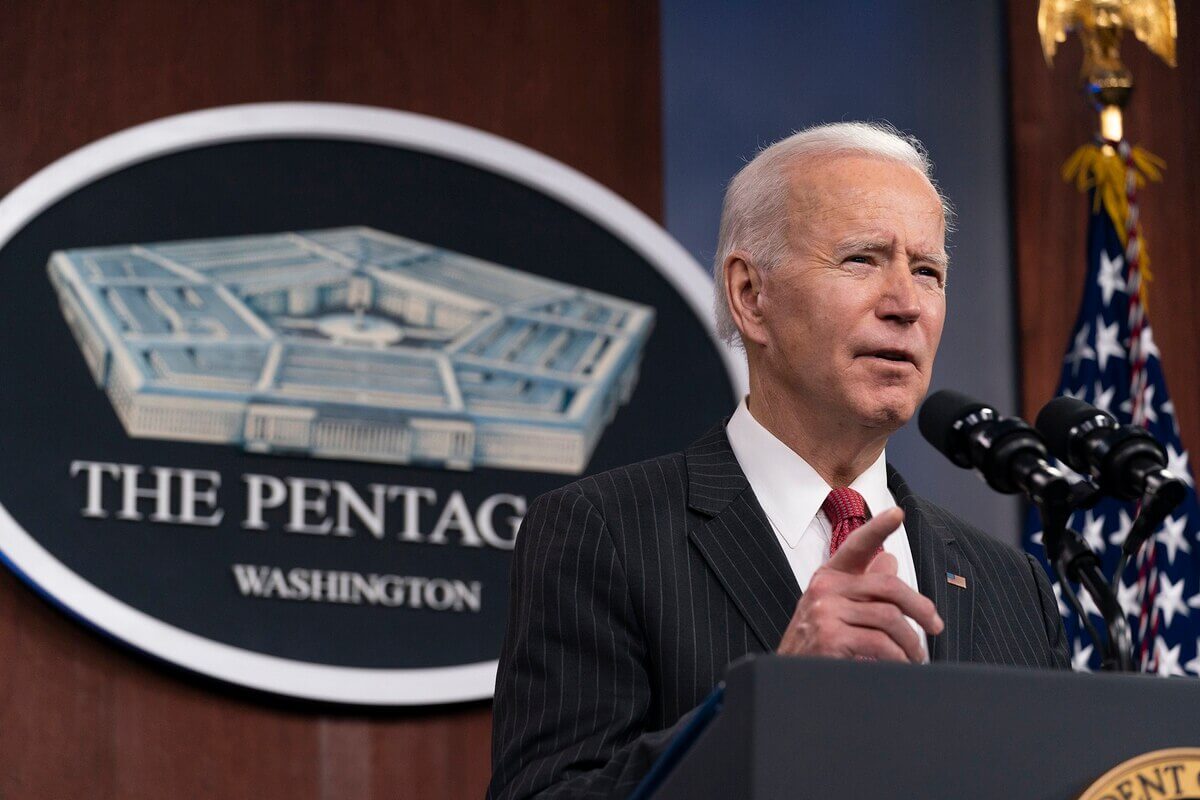The White House released its ‘Interim National Security Guidance’ on Wednesday, which sought to reaffirm the Biden administration’s commitment to uphold democracy at home and abroad and to elevate diplomacy as its first tool to meet any challenges.
The 24-page document contains broad guidance laying out the global security landscape (from a US perspective) and explains the government’s priorities in an effort to give initial direction to federal agencies to align their work accordingly until a more concrete national security strategy is developed. The text came on the heels of US Secretary of State Antony Blinken’s first major foreign policy address, in which he briefly outlined the administration’s major objectives, and how US diplomacy would carry out the president’s agenda.
Also read: Blinken Outlines Biden’s Vision for America in First Major Foreign Policy Address
As mentioned in Blinken’s speech, the guidance outlines a variety of issues the Biden administration hopes to take on, including addressing the COVID-19 pandemic and its devastating economic fallout, racial injustice, climate change, and the increasing use of emerging technologies and cyberattacks by US adversaries. The document also reiterates ideas key to Biden’s foreign policy vision, which—in a reversal from his predecessor’s approach—include revitalising democracy, investing in American competitiveness, and strengthening US alliances.
However, China remains a focus for the current leader as well, who said in the paper that it is “the only competitor potentially capable of combining its economic, diplomatic, military, and technological power to mount a sustained challenge to a stable and open international system.” Biden also vowed to support Beijing’s neighbours (i.e. Taiwan) and commercial partners from Chinese coercion, human rights abuses, and unfair trade practices.
“We will position ourselves, diplomatically and militarily, to defend our allies,” the president said, noting that the US would also strengthen its partnerships in the Indo-Pacific, Europe, and the Western Hemisphere through closer cooperation with NATO, Australia, Japan, South Korea, India, and New Zealand, along with ASEAN member states.
On technology and cybersecurity, the report says that Washington will work with other nations to “establish the new rules and practices that will allow us to seize the opportunities that advances in technology present.” In the wake of the recent SolarWinds hack against US federal agencies, the guidance makes clear that the administration will make cybersecurity an “imperative across the government” and strengthen “our capability, readiness, and resilience in cyberspace.”
“We will hold actors accountable for destructive, disruptive, or otherwise destabilizing malicious cyber activity, and respond swiftly and proportionately to cyberattacks by imposing substantial costs through cyber and non-cyber means,” the report reads. However, it also stresses that military force will not be used in haste and that diplomacy would always be the first instrument of foreign policy.
“The United States will never hesitate to use force when required to defend our vital national interests. … But the use of military force should be a last resort, not the first,” the guidance says, adding that military force “should only be used when the objectives and mission are clear and achievable, when force is matched with appropriate resources and as part of an integrated strategy, when it is consistent with our values and laws, and with the informed consent of the American people.”
The document acknowledges the US’ engagement in ‘forever wars’ like in Afghanistan that have cost “thousands of lives and trillions of dollars,” and reiterates the administration’s commitment to end the conflict while ensuring that Afghanistan “does not again become a safe haven for terrorist attacks” against the US. On nuclear non-proliferation, the text further notes that it will be diplomacy that will lead the way on the issue of North Korea and Iran, in stark contrast to the previous leadership’s policies of “maximum pressure.”
The guidance also lists climate change and the pandemic as top national security threats, and stresses that the US’ approach to these issues at home would help the country earn back its position of leadership in global institutions and fora. To this end, the administration pledged its support to help address climate change in developing nations and vowed to be a more active partner at the World Health Organisation (WHO) and the United Nations (UN) to help strengthen global health security infrastructure.
“We have no time to waste,” Biden stressed. “The simple truth is, America cannot afford to be absent any longer on the world stage. And under the Biden-Harris Administration, America is back. Diplomacy is back. Alliances are back. But we are not looking back. We are looking irrevocably toward the future and all that we can achieve for the American people — together.”

